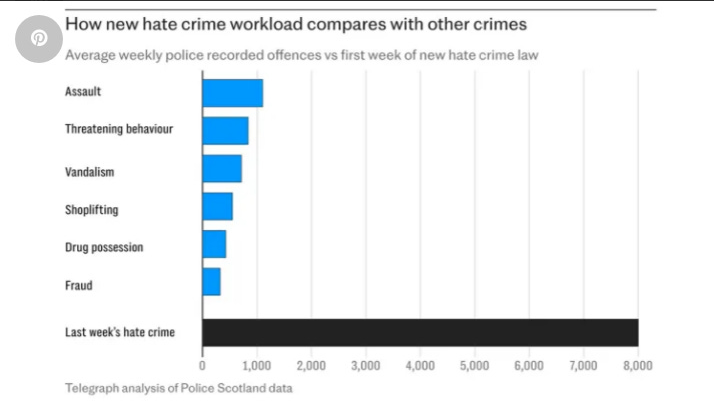Over the past few years, we have been subject to endless media reports on the devastating impact humanity is having on the global bee population. “Climate change is presenting huge challenges to our bees”, claimed the Irish Times last year. “Where has all the honey gone?”, asked the Guardian earlier this year.
The news from last week may come as a shock to some, then. It turns out that America actually has more bees than ever before, having added a million hives in just five years. The Washington Post, which reported these facts, was certainly surprised given what it calls “two decades of relentless colony-collapse coverage”.
Some of us, however, have been pointing out for more than a decade that the mysterious affliction called “colony collapse disorder”, which caused a blip in honey-bee numbers in the mid-2000s, was always only a temporary phenomenon. Globally, bees are doing better than ever. The trouble is that bad news sticks around like honey, while good news dries up like water.
Honey bees are a domesticated species, so their success depends partly on human incentives. In the case of America, the Texas state government’s decision to reduce property taxes on plots containing bee hives has boosted the popularity of beekeeping. When bees were in trouble, they were seen as a measure of the health of the environment generally. So their recovery can be regarded as a sign of good environmental health.
Why do stories of environmental doom, like this one about collapsing bee colonies, linger in the public consciousness, despite being outdated and wrong? The media are partly to blame. For environmental reporters, bad news is always more enticing than good. It’s more likely to catch the attention of editors and more likely to get clicks from readers. Good news is no news.
So I have a simple rule of thumb to work out when an environmental problem is on the mend: it drops out of the news. (The same is true of countries, by the way. When I was young, Angola and Mozambique were often in the news because they were torn by war; not today, because they are at peace.)
Take whales. In the 1960s, they were the (literal) posterboys of environmental alarm. There were just 5,000 humpback whales in the whole world and they seemed headed for extinction. Today, there are 135,000 humpback whales, which represents a 27-fold increase. For the first time in centuries they sometimes gather in groups of over a hundred. I have even seen them several times myself, which I had assumed as a boy I never would.
Most other whale species are doing almost as well: blue, fin, right, bowhead, sperm, grey, minke – all are increasing steadily in numbers (though certain subpopulations, such as North Atlantic right whales, are still struggling). But the story of whales’ resurgence just doesn’t make the news.
Or take polar bears. Just a few years ago, greens were constantly claiming that they were facing imminent extinction. In 2017, National Geographic published a video of a starving polar bear, with the tagline, “This is what climate change looks like”. It was viewed 2.5 billion times. No climate conference or Greenpeace telly advert was complete without a picture of a sad polar bear on an ice floe. Today, that’s a less common sight, because it is harder and harder to deny that polar bears are less and less rare. Despite heroic efforts by environmentalists to claim otherwise, there is now no hiding the fact that polar-bear numbers have not declined and have probably increased, with some populations having doubled over the past few decades. So much so that some environmentalists and researchers no longer think that polar bears are suitable symbols of man’s threat to the planet.
The refusal of polar-bear numbers to conform to the eco-pessimists’ narrative should not be a surprise. In 2009, Al Gore claimed that the Arctic polar ice cap could disappear in as little as five years. A decade on, that is still nowhere near happening yet. Besides, polar bears have always taken refuge on land in late summer in regions where the ice does melt, such as Hudson Bay.
Another Arctic species, the walrus, is doing so well now that it sometimes turns up on beaches in Britain. It’s the same story for fur seals, elephant seals and king penguins. A few years ago, I visited South Georgia in the Antarctic and saw thousands upon thousands of all three species, when little over a century ago they would have been very rare there.
These whales, seals, penguins and bears are booming for a very simple reason: we stopped killing them. Their meat could not compete with beef. And, above all, their fur and blubber could not compete with petroleum products. Or to put it another way, fossil fuels saved the whale.

















